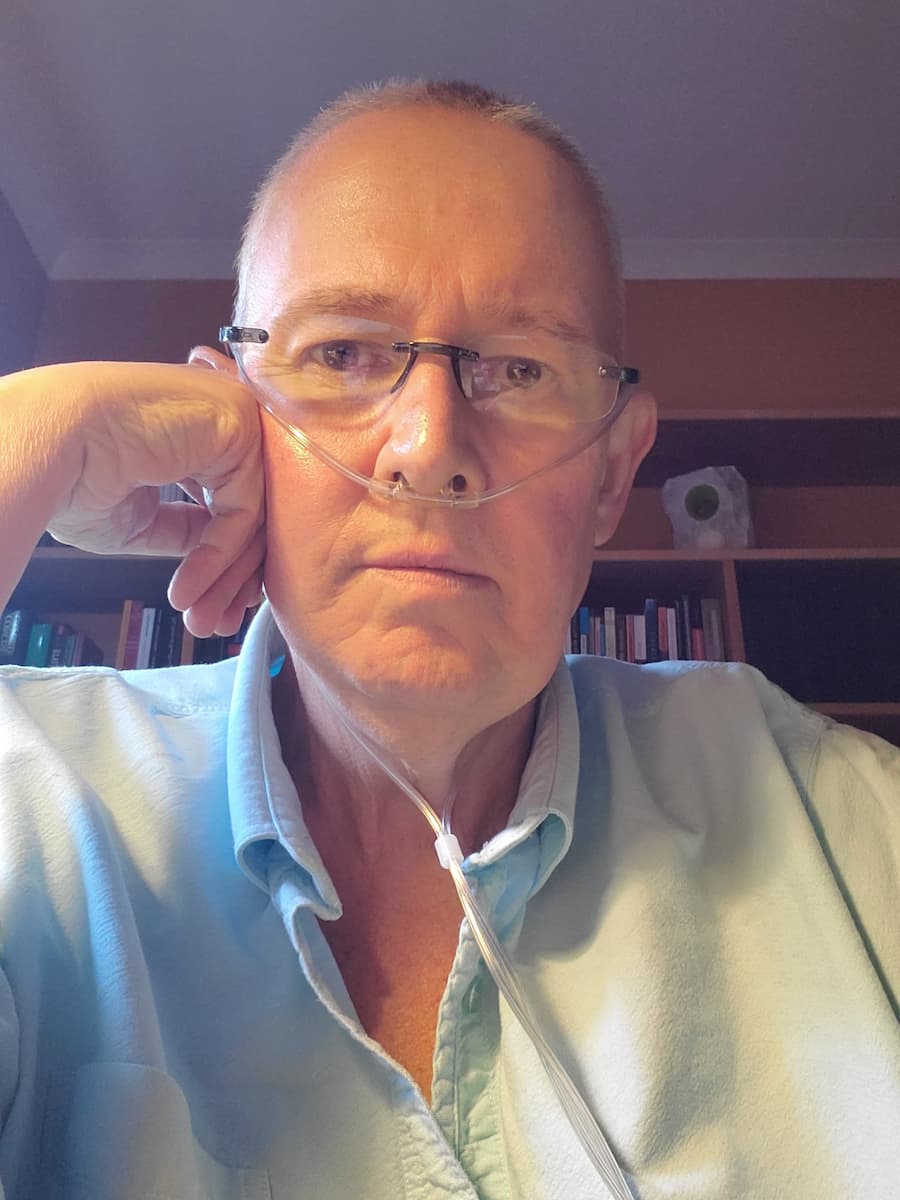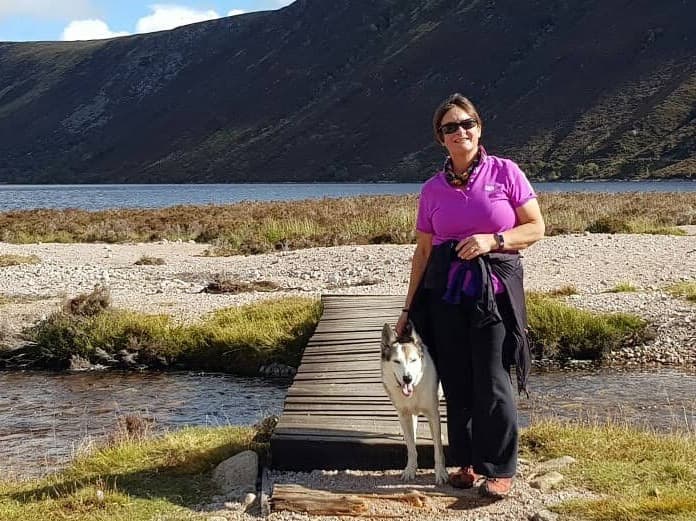Some of the PPI work we do here at the Epidemiology group pertains to a specific study, and the people who provide this input are known as Patient Partners. Below you can read some testimonials from some of our Patient Partners about the value of patient involvement in the research process. If you have worked with us as a Patient Partner and would like us to share your story below, please get in touch by emailing epippi@abdn.ac.uk .
Patient Partner stories
Below you can read some testimonials from just a few of the many Patient Partners who help to shape our studies.
- Steve Chinn
-
I was diagnosed with ANCA Vasculitis with MPO Antibodies, also known as Microscopic Polyangiitis, in December 2018. With hindsight, I can see that my health had been declining for some time: I was getting more fatigued when walking, and had signs of kidney problems. Within a year, the vasculitis had removed all of my kidney function, and caused significant scarring in my lungs. I am now a dialysis patient, and am on a cocktail of treatments to keep the vasculitis in remission, and try to stop further damage to the lungs. But as we all know, this disease can progress, so the future is uncertain.

So I try to give something back by acting as a patient advisor on research projects. This involves working with the research team to build a patient perspective into the way research needs are identified, and the research itself is designed and carried-out. The questions of concern are: what's important to patients with this disease? What are the problems that really concern patients? Where are new knowledge and understanding needed? Is a research study designed in a way that patients will respond to? Does the study justify the time and effort patients will put into participating in it? Will it collect the right information, and use it in an effective way? In the end, I always want to help ensure that a study gets at the real issues, and produces relevant information. Sometimes, there are questions of wording too. Medical professionals often use terms in very specific ways, and patients can easily misinterpret them. A patient advisor keeps a watching eye out for this.
I think it is very important, as a patient advisor, to represent all patients, and not just one's own views. After all, we experience this disease in so many different ways, and we deal with it in our own ways. So I talk to fellow patients a lot. I've learnt a few things from this. One is that what's important to patients often isn't what's treated as important in medicine. Life changes in many ways as a disease progresses, and sometimes, the non-medical problems can seem like the biggest ones. Another is that there's a reason we're called patients - it's that we have to be infinitely patient. We often feel like we're spending much of our time, as a fellow patient said, “on someone else's timetable”. Another is that what counts as quality of life in medical research can still leave patients with sizeable day to day challenges. All of these things can inform the advice given by the patient advisor to the research team.
I have also been asked by my hospital to act as 'research champion' for my patient group. This means helping to communicate what's involved in participating in research, encouraging fellow patients to step forward when called on, and answer any questions. Research is crucially important in a number of ways. It produces the information that helps to achieve two goals:
- Better understanding of our needs as patients and carers, so services can better meet them.
- Develop and trial new treatments, behaviours and devices (including both brand new meds, and new ways to use existing meds) - so that genuine progress will be made in how medicine can treat vasculitis and all the knock-on problems that come with it.
I think the most important thing to know about research is this: research is how medicine and healthcare move forward. We, the patients, are the partners of the scientists, medical professionals and other researchers who make it happen. Our role is crucial. Without us, there is no research. Without research, there is no progress.
The patient advisor is there to help this all happen, and that's very rewarding.
- Debra Dulake
-
I'm not backwards at going forward, and not a lot of people have the ability to be able to stand up and make themselves understood and heard. I feel very privileged to be able to say that I can put everybody's point of view across; for me, research, for it to be relevant to people on the ground, it needs to be patient centred. It needs to have patient involvement from beginning to end, even if it's just an idea from a researcher… it needs to be run past a group of patients to say, what do you think about this? How do you think this would work? Are there any changes that you think we should be making? I've been in so many meetings in different rooms with different organisations where I've stated something that happens in my day to day, and I've had professors and scientists look at me and they had never even thought of that point of view, it hadn't even entered into their minds that that could be relevant to a patient.
So, for me, it's all about letting them know that we are on the same team that we can fight these horrible, horrible diseases together and get our voices out there to make changes at the top where it really matters, with the NHS with government, with benefit systems. Making diseases that are really not heard of heard - and giving them time; where people are able to say you're not going mad, it is real, that it can, it can be looked at. It can be researched. Let's try and help you. You know that light when you're in a very, very dark room of feeling not well and not right, and you're in pain, that light is worth all the weight in gold
- Mo McBain
-

Due to the fact that different groups' perspectives (professionals and patients) have been listened to, this study will for the first time give a clearer picture of what patients are experiencing regarding access to treatment and support services and more importantly suggestions on what and where improvements could be made.
For me, this project is proof that we (as patients) have been included and that our voices are being heard. Saying that, there is still much work to be done regarding awareness, research, education and support into vasculitis but hopefully this project will fill some of these gaps and I'm looking forward to seeing the outcomes.
